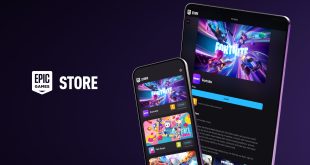Free to Play and Freemium style apps have been a huge source of income for developers but it also turns out that these apps generate most of the Google Play store's overall revenue. The Play Store surpassed 1 million apps last summer and now the total number of apps on the store sits at around 1.5 million. Thanks to this huge growth, Play Store revenue on games such as android slot machines games apps and free or real money slot machine apps has also doubled in the last year.
Japan has the lead as the world's biggest spender on in-app content, mostly due to the addictive nature of some mobile games. The US and South Korea occupy the second and third spot. Games currently account for 40 per cent of all Play Store downloads but manage to make up 90 per cent of all Android revenue and 98 per cent of all Play Store revenue.
Asian markets are fully embracing the freemium business model and while other territories aren't buying in to it as much, sales are still on the rise. App Annie revealed all of these statistics in an 18 page long report on the rise of freemium apps in the Google Play Store.
Discuss on our Facebook page, HERE.
KitGuru Says: Free to Play with micro-transactions has been a viable business model for some time now but it's starting to spread from mobile into full titles too. plenty of MMO's have also switched to the Freemium model. What do you guys think of the freemium model? Should developers keep adopting it?
Source: App Annie
 KitGuru KitGuru.net – Tech News | Hardware News | Hardware Reviews | IOS | Mobile | Gaming | Graphics Cards
KitGuru KitGuru.net – Tech News | Hardware News | Hardware Reviews | IOS | Mobile | Gaming | Graphics Cards




If done right fremium works incredibly well. It enables you to place your own value on a game rather than being told that it costs THIS much, like it or lump it. Some games such as World of tanks and Rift have adopted this model very well, with paid players not gaining significant advantages over non paying players – everthing is achiveable through playing and the best items/vehicles are achieved through earning them rather than purchasing. Subscription models could be more viable if they didnt hammer you with massive initial purchases which force you to take a massive risk on a game that you might not play again after the initial 30 days play time. At least with an f2p game you can return whenever you feel like it and feel cheated if it turns out to be terrible/boring/not your cup of tea.
EA however seems to take a crappy approach and in almost all of their titles involving micro transactions you end up hitting the F2P wall so fast you might as well have not started at all.
Not all f2ps are build the same. Most are nothing but pay to wins, dishing out low returns for all your time and effort spent, which ultimately leads you nowhere. Its like un regulated gambling. While a casino slot machine has set rules and regulations, a developer is free to manipulate code to his favor or tweak it if it seems to be paying out too much. They will try to sugar coat it, and give you free gifts or free draws(another free try for a premium item, but with hidden ratios that are coded with horrendously low odds), but those gifts just ends up drawing useless junk. Then when your base resources are used up, you spend to re supply, giving you slightly more free draws short of the better prizes cause you didnt spend a whole lot or enough to acquire the best to win your way up. So the non paying player toil and toil away, while the people with the deep pockets rule the board. WoTs has a great model for striking a balance, people are free to pay etc, but to be up there you just really have to work for it. Diablo III tried, but greed just got the better of everyone, so it ended up being a mall of america rather than a true free flowing hack and slash. But they’ve learned from their mistakes and killed the AH. Granted gaming apps ultimately are made mostly for profit, people should be paid. But the current stance that developers are taking is nothing but pure greed and not for the enjoyment or betterment of the games and platform. There are games like Angry Bird that you pay to give you a boost or slight better advantage but it still an skillful and challenging game. While on the other hand card base games like ones from Mobage/Dena that unless your paying or buying your way, you will never get to be better. People are still ignorant of the fact, but like – all great things, silicon valley, housing market – people will wisen up sooner or later, the market will get saturated, and the bubble will burst. Like how you used to see chinese fast food take out everywhere you go, now your seeing japanese restaurants every city you can think of.